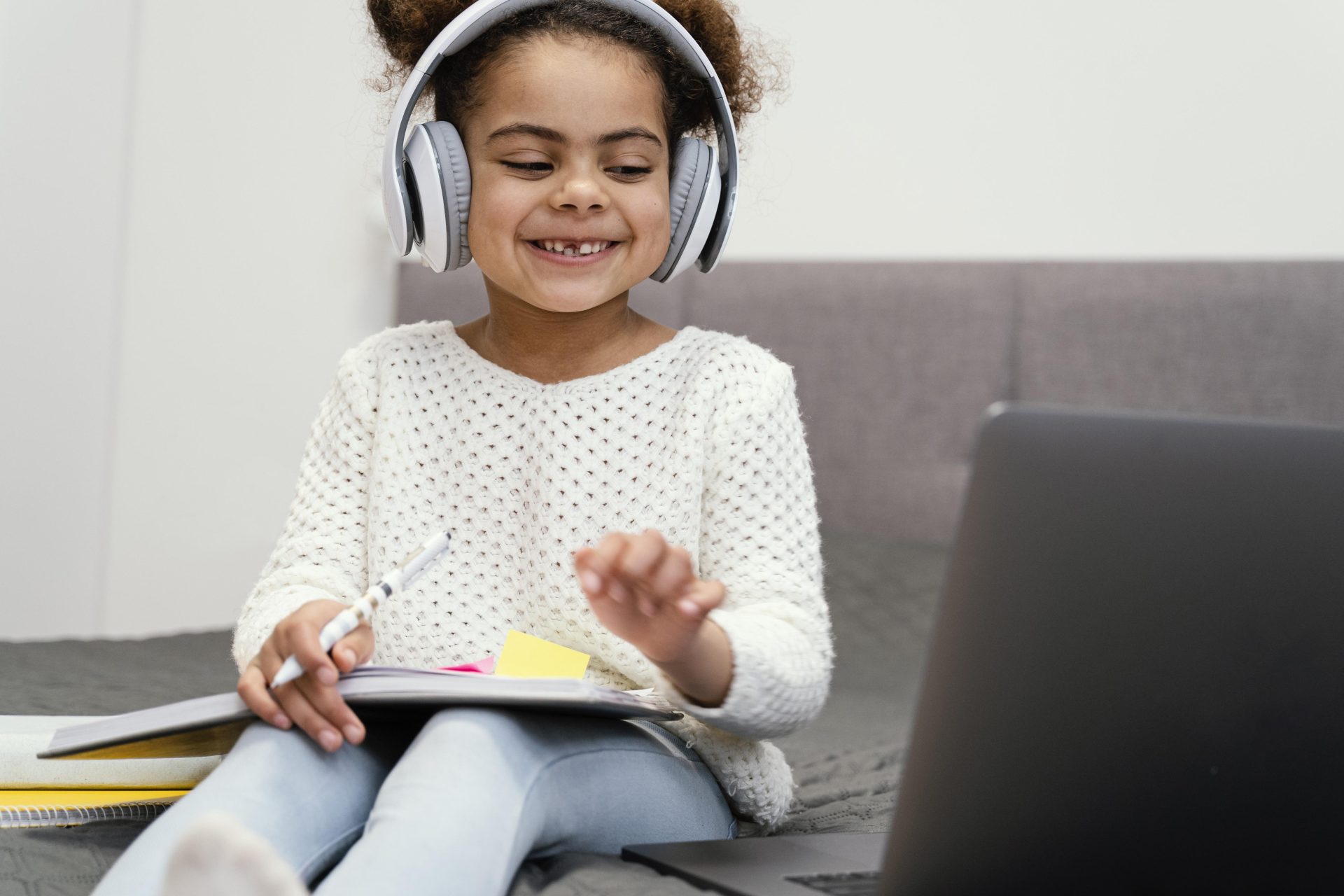Contents
- 1 Unschooling in the US: A Brief Overview
- 2 Distinguishing Unschooling from Traditional Education
- 3 Flexibility in Learning Environment
- 4 State-wide Unschooling Regulation Overview
- 5 The Impact of Unschooling on Academic Performance
- 6 College Acceptance Criteria
- 7 The Social Influence of Unschooling
- 8 Analyzing the Unschooling Debate
Unschooling is one form of homeschooling that focuses on education that helps children learn at their own pace. Unschooling pushes forward personalized learning by making a child’s interests and abilities as the foundation of learning instead of any specific educational curriculum.
All 50 states in the United States of America allow unschooling as a form of education, but the regulations different state by state. Certain states can ask for reports of progress and some may not. Families, who want to turn their homeschooling into unschooling, must understand and adhere to the state’s policies to avoid any legal issues.

Unschooling in the US: A Brief Overview
Unschooling is an alternative education type that appears in the United States. This type of learning bases itself on a child’s passions and innate curiosity, which drives the initial curriculum. This education type gives children the power to study topics that capture their attention. This method progresses at young student’s speed without putting deadlines on their education.
Sara, a mother who supports unschooling, says below.
“I feel like this method of education plays a huge role in the self-esteem and confidence I see in my children… they develop a strong sense of autonomy and personal responsibility for their own learning.”
– Sara from Happiness is Here
Unschooling nurtures a sense of motivation by helping children develop genuine interests for different subjects. This motivation will help them in seeking knowledge and opportunities for growth in their daily lives.
A fundamental aspect of unschooling is viewing learning as a process that happens organically through exploration and immersion in different daily activities. Unschooling supports students’ personalized learning. This educational path involves field trips, community service initiatives, artistic endeavors, and more that can help young students find their interests and their place in the educational sphere. For example, some students may visit art galleries and wish to become an artist, which then will lead their education journey while another student may see computer scientists work and wish to go down the IT path.
Are you interested in unschooling already? How about checking out virtual education at Legacy Online School to see what other type of education is available for your child!
Distinguishing Unschooling from Traditional Education
Kids have the freedom to explore their interests and dive into topics that catch their attention in unschooling. Unschooling takes into consideration each child’s interests and how they learn best. This method allows students to lead their education and encourages them to pursue their interests. This approach underlines the importance of supporting a child’s natural talents.
Unschoolers often learn through real-life events like visiting museums, nature exploration, and participating in internships. These unique activities can act as classrooms by offering a hands-on approach to learning and helping students learn essential life skills.
Flexibility in Learning Environment
Unschooling provides flexibility in the setting by giving children the freedom of education. This personalized method helps children understand and explore their talents while meeting their education requirements. Personalization of their education helps address strengths and weaknesses of each by creating an atmosphere where they can succeed at their own pace.

State-wide Unschooling Regulation Overview
Unschooling is allowed nationwide in the United States but it is essential to know and understand that each state has its rules concerning homeschooling. These rules play a role in how families can record their successes and plan out their pursuits for unschooling.
Certain states require monthly reporting on homeschooling. These requirements ask for recorded education hours, portfolio of learning activities, or standardized test results to show what the child has been studying. Unschooling families must be aware of and comply with these requirements to ensure they operate within the bounds of the law.
For example, in Pennsylvania, homeschoolers must submit an affidavit to the school district superintendent which includes a list of objectives they need to meet. This list outlines what the child will achieve during the academic year.

The Impact of Unschooling on Academic Performance
Unschooling can help students learn faster because it will spark their curiosity and passion by letting children advance at their speed. This type of education creates a space where children can concentrate on their innate abilities and interests to develop freely.
This personalized approach can result in exceptional academic achievements beyond their age levels since children will learn what they are passionate about. A child with an interest in astronomy might delve deeper into complex astrophysics concepts at a young age, which will lead to developing a better understanding of the subject’s principles unlike those who are not interested in the subject.
Personalization creates a strong sense of independence, critical thinking, and problem-solving skills in unschooled children. Under unschooling children can reach remarkable results because they will follow their curiosity.
Unschooling Mom2Mom bloggers discuss their views on how this type of education affected them and their children below.
“Unschooling allows you to meet the needs of your family… having the freedom to control your own calendar enables you to move around during non-peak times.”
College Acceptance Criteria
Unschooling allows flexibility in education, which raises questions about its compatibility with college admissions. Many unschooled students secured spots in higher education through alternative portfolios that highlight real-world experiences and self-directed studies.
Unique portfolios show off diverse skills developed through unschooling and events they’ve learned from. These skills show knowledge beyond traditional academics since they learned from hands-on experiences.
Unschooling supports individualized learning which creates dynamic learners with diverse skills. It also influences social development.
The Social Influence of Unschooling
A child’s growth is the major concern about unschooling. Traditional schools provide a structured environment for social interaction. On the other hand, unschooled children benefit from engaging with various communities and age groups outside of the traditional environment.
Unschooled children learn their communication skills and develop a deeper understanding of the world by interacting with individuals from different backgrounds. Children who go through unschooling exhibit confidence and self-motivation since they take ownership of their learning and pursue their interests independent from traditional school curriculum.
Analyzing the Unschooling Debate
The debate on unschooling embraces various perspectives which reflect the communities involved. The keys to unschooling as an educational path are parental responsibilities and child autonomy. Additionally, it also involves ideologies, practical applications, and societal impacts.
Supporters see unschooling as a liberating and natural method for children’s education, while critics raise concerns about academic skill gaps and parental influence on a child’s learning path. The level of parental involvement is major without doubt and some question if it would overwhelm the parents or strengthen their parent-child bonds.
Check out Legacy Online School programs to find what you need:
- Legacy Online School’s elementary school program sets the bar high. This is a quality education. We strive to ignite curiosity. We also strive to foster creativity. We offer a strong curriculum. We are assisted in this by qualified educators.
- Legacy Online Middle School provides digital education. It is designed for middle school students. The school prides itself on offering live online classes taught by certified teachers. The classes are online and interactive.
- Legacy Online High School is a unique method of online learning carefully designed for high school students. It combines synchronous learning, a wide range of pedagogical methods, and an emphasis on accessibility.
Legacy Online School offers the best curriculum for you and your child to get the best online educational experience.
Our rigorous curriculum ensures that graduates are well prepared for universities and workplaces around the world. In addition, our vibrant virtual clubs connect students all around the world.





